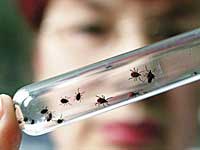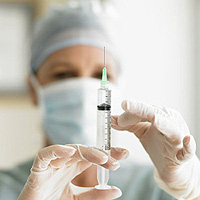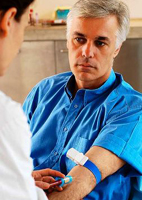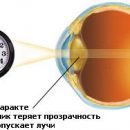Malaria. We know that it is transferred to mosquitoes that she is quite dangerous. But what she is dangerous? How malaria is manifested? How to recognize the disease?
Content
Malaria - A group of acute infectious diseases caused by the simplest parasites from the kind of plasmodiums that manifestate by feverish attacks, anemia, an increase in liver and spleen.
Who causes malaria
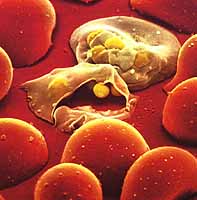 Human malaria causes 4 types of plasmodium causative agents: tropical, three-day, four-day and oval malaria.
Human malaria causes 4 types of plasmodium causative agents: tropical, three-day, four-day and oval malaria.
The source of infection is a sick person or a carrier of causative agents of the disease. Infection carrier - some types of mosquitoes. In vivo, a man's infection with malaria occurs through the bites of infected malarious mosquitoes.
The spread of malaria is possible in the presence of a source of infection (patient malaria), malaria mosquitoes and favorable climatic conditions. The vital activity of parasites of malaria in the organism of mosquitoes is possible at air temperature 16OC and higher. The duration of the development cycle of parasites in a mosquito - about about about a month.
Foci of malaria are available in areas with tropical and subtropical climates. Malaria is widespread in almost all countries of Africa and South America, Asia and the Pacific Islands. In recent years, the situation of malaria in the world is worsening.
Only in Africa south of Sahara annually, 100 million people are ill and about 1 million patients die. In India and Brazil, up to 2.6 million patients with malaria are registered annually. Malaria is available in Tajikistan and Azerbaijan. The foci in the Astrakhan region intensified and re-appeared in Rostov, Volgograd, Samara and other regions of Russia.
Currently, the causative agent of tropical malaria has developed drug resistance to drugs, widely used for its treatment.
How malaria develops
When infected by the person's plasmodium infects, the tissue cells penetrate, for 6-9 days are repeatedly divided and penetrated into erythrocytes in large numbers, where their reproduction continues, especially rapid tropical malaria plasmodium. After a certain time, depending on the type of plasmodium, the massive destruction of infected erythrocytes and exit to the blood of parasites begins. This is accompanied by a development in a patient of a feverish attack.
In tropical malaria, infected erythrocytes accumulate in the vessels of internal organs, mainly a brain, which leads to a violation of blood circulation in them and the development of severe complications - the malaria coma and others.
In the body of a person's plasmodity of tropical malaria, there are up to 1.5 years, three-day malaria - up to 3 years, and therefore there may be recurrences of the disease.
How to recognize malaria
Incubation period, depending on the type of malaria, from 8 to 25 days. With three-day malaria, the disease is possible after 6-14 months after infection.
The initial manifestations of malaria are characterized by periodic chills, increased sweating, pain in muscles, joints, lower back, moderate increasing body temperature, more often up to 38OWith, light chairs. These phenomena are saved from 2 to 5 days.
Then appear characteristic for malaria, feverish attacks. Attacks are usually repeated every other day. In tropical malaria they can be observed daily. Forestrate attacks usually occur in the morning with the maximum temperature in the first half of the day. Suddenly comes chills, as a rule, stunning. The duration of its 1.5 h. Chills replaced by a feeling of heat. With a decrease in body temperature, the patient begins to sweat and well-being to it quickly improves; it calms down and often falls asleep. After that, the health of the patient until the next attack can be quite satisfactory, the performance remains.
Tropical malaria, complicating a coma, is characterized by increasing headaches, dizziness. Deorientation, drowsiness, confusion, is developing, which indicates the beginning of the coma. During the true coma, there is no consciousness, the body temperature rises to 40.0OWITH.
Doctors will confirm malaria
Malaria is confirmed by the detection of malaria plasma in blood preparations.
Blood on malaria is investigated:
- In all patients with fever who arrived from dysfunctional in malaria districts over the past 2 years;
- In patients with periodic increase in temperature;
- In patients with obscure feverish diseases with an increase in liver and spleen and the development of Malokrovia obscure nature.
Ambulance for malaria
In suspected malaria, it is necessary to immediately cause emergency assistance to conduct urgent hospitalization. Treating patients with malaria begin immediately if the disease is suspected, without waiting for the results of a laboratory study. Time loss in tropical malaria can entail the development of a severe form of death with fatal complications.
After transferred malaria
Magnifying malaria are under medical supervision for 2 years. If they occur, any fever has a study of blood on malaria plasmodia.
Malaria warning
It is carried out by taking antimalarial drugs by persons traveling to zones where malaria is distributed and measures to protect against mosquitoes.
To protect against mosquito bites in places where malaria is widespread, you should sleep in the rooms, doors and windows of which are tightened with a grid, or sleep under a mesh canopy, preferably impregnated with insecticide; From twilight until dawn dress up so as not to leave open arms and legs; Open parts of the body process a repellent.



